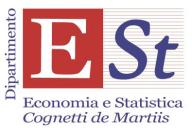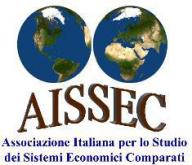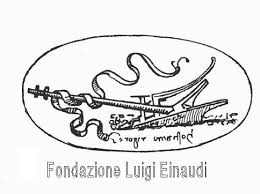13 | DECEMBER 2019
by Xieshu Wang and Marta Marson, University of Turin and OEET
Newsletter n. 13| December 2019 - Download PDF
This issue of Emerging Economies and the next will include some main contributions presented at the 5th Workshop organized by OEET and AISSEC at the Department of Economics and Statistics “Cognetti de Martiis” of the University of Turin on 3rd and 4th of October 2019, around the topic of “Trade Wars and Global Crises: The Outlook for Emerging and Advanced Countries”.
By Pompeo Della Posta, Department of Economics and Management, University of Pisa
In this paper I review and discuss the past and current phases of globalization, namely the first phase (1869-1914), the second phase (1944-1979) and the third phase (1979-2016) together with the crises characterizing both the period between the two world wars and the current phase of (de)-globalization, that can be considered as starting with the election of Donald Trump to the presidency of the US administration and with the occurrence of Brexit, and continuing with the spreading of neo-nationalism and populism worldwide. I also discuss and compare the two waves of criticism of globalization, namely the one started at the end of the 1990s and the current one, coinciding with a crisis of globalization.
By Giovanni Graziani, University of Parma
Tariffs generally tend to cause an increase in the import price of products. The increase in domestic price of imports may have four direct effects.
By Carlos Mulas-Granados, European Department of the International Monetary Fund1
The Czech Republic exports only a small number of cars and car parts directly to the United States, but we expect it to lose significantly in a potential scenario in which the United States imposes tariffs on cars. Why is that? The key to this puzzle is the extensive supply chains that dominate the production of European cars and many other products. The explanation is simple: while direct exports of cars and car parts from the Czech Republic to the United States are small, the Czech Republic exports a significant amount of car parts to other European countries, which in turn export to the United States. Hence, in our recent paper, we analyze the possible impact of trade tensions taking fully into account these supply chain linkages.2
By Giuliano Lengo – General Manager, Piemonte Agency for Investments, Export and Tourism
"We await the response of the arbitration on the US decision to apply duties to EU products. That decision would hurt us a lot ... "
Giuseppe Conte, Italian Prime Minister
Saturday, September 28th, Bologna Villaggio Coldiretti
Our activities
-
AFRICA: DEVELOPMENT, SUSTAINABILITY AND GREEN TRANSITION
Tuesday, January 27th 9.45 – 17.00 Aula SV002, Università Cattolica del Sacro Cuore; Via San...









